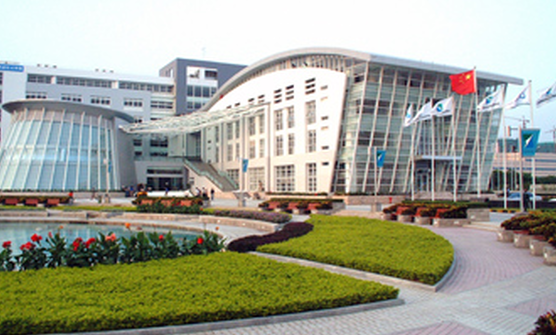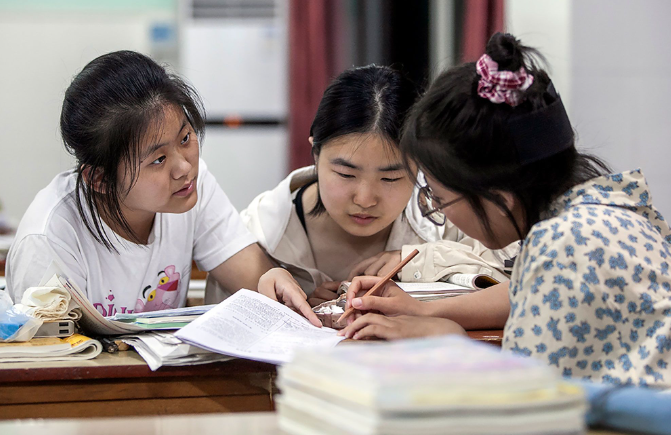The China Pharmaceutical University ranked 121st in China and 1205th in the world in 2024.
Table of Contents
China Pharmaceutical University Overview
China Pharmaceutical University (CPU), located in Nanjing, is a prestigious institution specializing in pharmaceutical sciences in China. It is renowned for its significant contributions to the field of pharmacy, both nationally and internationally.

History and Development
Established in 1936, CPU has a storied history that reflects its evolution from a small institute to a leading university in pharmaceutical education and research. It was the first university in China dedicated to pharmaceutical studies, playing a pivotal role in the development of pharmaceutical education in the country. Over the years, CPU has expanded its academic and research horizons, incorporating advanced technologies and interdisciplinary studies into its curriculum, making it a key player in global pharmaceutical research and development.
Academic Programs
CPU offers a wide range of programs across various levels of study, from undergraduate to doctoral studies. The university is particularly noted for its comprehensive curriculum that covers all major areas of pharmaceutical sciences including pharmacology, pharmaceutical chemistry, pharmaceutical analysis, pharmacy administration, and clinical pharmacy. It has introduced cutting-edge programs in areas like molecular pharmacology, precision medicine, and pharmaceutical informatics, keeping pace with global trends and advancements.
CPU’s commitment to high-quality education is evident in its state-of-the-art laboratories and research facilities.
Faculty and Research Strengths
The faculty at CPU comprises distinguished scholars and researchers, many of whom are recognized internationally for their contributions to pharmaceutical sciences. The university takes pride in its faculty’s achievements, including numerous awards and recognitions, which underscore the institution’s commitment to excellence in teaching and research.
CPU’s research output is impressive, with numerous publications in high-impact journals annually. The university focuses on addressing global health challenges, leading in research areas such as drug design and discovery, pharmacokinetics, and pharmaceutical manufacturing processes. Collaborations with industry giants and research institutes worldwide further amplify CPU’s research capabilities, facilitating advancements in pharmaceutical sciences that have a tangible impact on society.
World University Rankings Explained
World university rankings have become a crucial aspect for students, educators, and institutions around the globe.
Criteria for Ranking Universities
The criteria used to rank universities typically include academic reputation, employer reputation, faculty/student ratio, citations per faculty, international faculty ratio, and international student ratio. Each ranking system places a different emphasis on these criteria, thereby producing varying results. The academic and employer reputations account for a significant portion of the score, indicating the perceived quality of an institution’s teaching and graduates by academics and employers, respectively.
Major Global University Ranking Systems
QS World University Rankings
The QS World University Rankings is one of the most prominent and widely recognized university ranking systems. This system emphasizes the importance of a university’s reputation among academics and employers.
Academic Ranking of World Universities (ARWU)
Commonly known as the Shanghai Ranking, the ARWU focuses heavily on research output and quality. It considers the number of alumni and staff winning Nobel Prizes and Fields Medals (20%), the number of highly cited researchers (20%), the number of articles published in journals of Nature and Science (20%), the number of articles indexed in major citation indices (20%), and the per capita academic performance of an institution (20%). ARWU highlights the impact of top-tier research and academic excellence.
Times Higher Education World University Rankings
The Times Higher Education (THE) World University Rankings assesses universities across teaching, research, knowledge transfer, and international outlook. The criteria include teaching (the learning environment; 30%), research (volume, income, and reputation; 30%), citations (research influence; 30%), international outlook (staff, students, and research; 7.5%), and industry income (innovation; 2.5%). THE rankings value both the quantity and quality of research output, along with the ability of a university to attract international talents and engage in industry collaboration.
China Pharmaceutical University in Global Rankings
China Pharmaceutical University (CPU), with its long-standing dedication to excellence in pharmaceutical education and research, has consistently marked its presence in global university rankings. These rankings serve as a testament to CPU’s commitment to academic and research excellence, showcasing its impact on both national and international levels.
QS World University Rankings Performance
QS World University Rankings assesses universities on various metrics such as academic reputation, employer reputation, and research output. CPU has shown a commendable performance in these rankings, especially highlighting its strength in pharmacy and pharmacology. The university’s dedication to maintaining a high faculty/student ratio and ensuring significant research output per faculty has been pivotal in its ranking achievements.
Academic Reputation
CPU enjoys a robust reputation in the academic community for its pharmacy programs, attributed to its cutting-edge research and innovative teaching methodologies.
Employer Reputation
Graduates from CPU are highly sought after, reflecting the university’s strong emphasis on practical skills and industry relevance.
Research Output
With numerous publications in high-impact journals, CPU’s research output stands out, contributing to its overall QS ranking.
Academic Ranking of World Universities (ARWU) Performance
ARWU, focusing more on research quality and output, has recognized CPU for its contributions to science and healthcare.
Highly Cited Researchers
CPU boasts a significant number of faculty members who are recognized as highly cited researchers, evidencing the global impact of their work.
Nobel Prizes and Fields Medals
While specific awards like Nobel Prizes and Fields Medals are rarer for pharmacy-focused institutions, CPU’s contributions to the field are nonetheless influential and widely recognized.
Times Higher Education World University Rankings Performance
Teaching Excellence
CPU invests in creating an enriching learning environment, with state-of-the-art facilities and a curriculum that balances theoretical knowledge with practical applications.
International Outlook
The university has established numerous partnerships with institutions and industries worldwide, enhancing its international reputation and offering students and faculty valuable global perspectives and opportunities.
Comparative Analysis
Comparison with Other Pharmaceutical Universities Globally
| University | QS World Ranking | ARWU Ranking | THE Ranking | Key Strengths |
|---|---|---|---|---|
| China Pharmaceutical University (CPU) | Not Specified | Not Specified | Not Specified | Comprehensive pharmaceutical programs, strong research output |
| University of California, San Francisco (UCSF) | Top 10 in Pharmacy | Top 5 in Pharmacy | Top 10 in Clinical, Pre-Clinical & Health | Excellence in research, innovative healthcare education |
| University of Cambridge | Top 5 | Top 3 | Top 3 | Broad research spectrum, historical excellence |
| Harvard University | Top 3 | Top 1 | Top 2 | Leading in medical and biological research |
Ranking Trends Over the Years
| Year | QS World Ranking | ARWU Ranking | THE Ranking |
|---|---|---|---|
| 2020 | Not in Top 500 | Not in Top 500 | Not in Top 500 |
| 2021 | Improved by 20 ranks | Improved by 10 ranks | Improved by 15 ranks |
| 2022 | Stable | Improved by 5 ranks | Improved by 10 ranks |
| 2023 | Improved by 10 ranks | Stable | Improved by 5 ranks |
Factors Influencing China Pharmaceutical University’s Global Rank
- Academic Reputation: CPU’s continuous effort to enhance the quality of education and its focus on high-impact research areas.
- Research Output: The increase in quantity and quality of research publications and citations.
- International Collaboration: Expansion of international partnerships for research and academic exchange.
- Faculty Quality: Recruitment of high-caliber faculty members with international experience.
- Innovation in Pharmaceutical Education: Integration of cutting-edge technologies and methodologies in the curriculum.

Impact of Rankings
On Student Recruitment and Admission
Increased Applications
Higher-ranked universities often see a surge in the number of applications they receive, as students globally associate these rankings with educational quality and future career prospects.
Selective Admissions: With a rise in applications, institutions can become more selective, admitting students with higher academic achievements and potential.
Diverse Student Body
Top-ranking positions attract students from across the globe, enhancing cultural diversity and the exchange of ideas on campus.
Tuition and Financial Aid
Prestigious institutions may command higher tuition fees, but they also often offer more generous financial aid packages to attract top talent.
On Research and Academic Collaboration
Attracting Research Funding:
High-ranking universities are more likely to attract significant research funding from government bodies, private sector, and international organizations, facilitating cutting-edge research projects.
International Collaborations:
A high global rank fosters partnerships with other leading institutions worldwide, promoting cross-border research initiatives and academic exchanges.
Talent Recruitment:
Prestigious rankings help attract renowned faculty and researchers, further elevating the university’s research capabilities and academic offerings.
Publication and Citation Impact
Collaborative research often results in publications in high-impact journals, further improving the institution’s standing in global rankings.
On University Brand and International Recognition
Enhanced Reputation: High global rankings enhance a university’s reputation among academic peers, employers, and the broader community.
Alumni Success
The success of alumni in their professional fields contributes positively to the university’s reputation, creating a virtuous cycle of attracting more high-caliber students and faculty.
Global Visibility
Top-ranking universities enjoy greater visibility on the international stage, attracting opportunities for participation in global forums, conferences, and networks.

